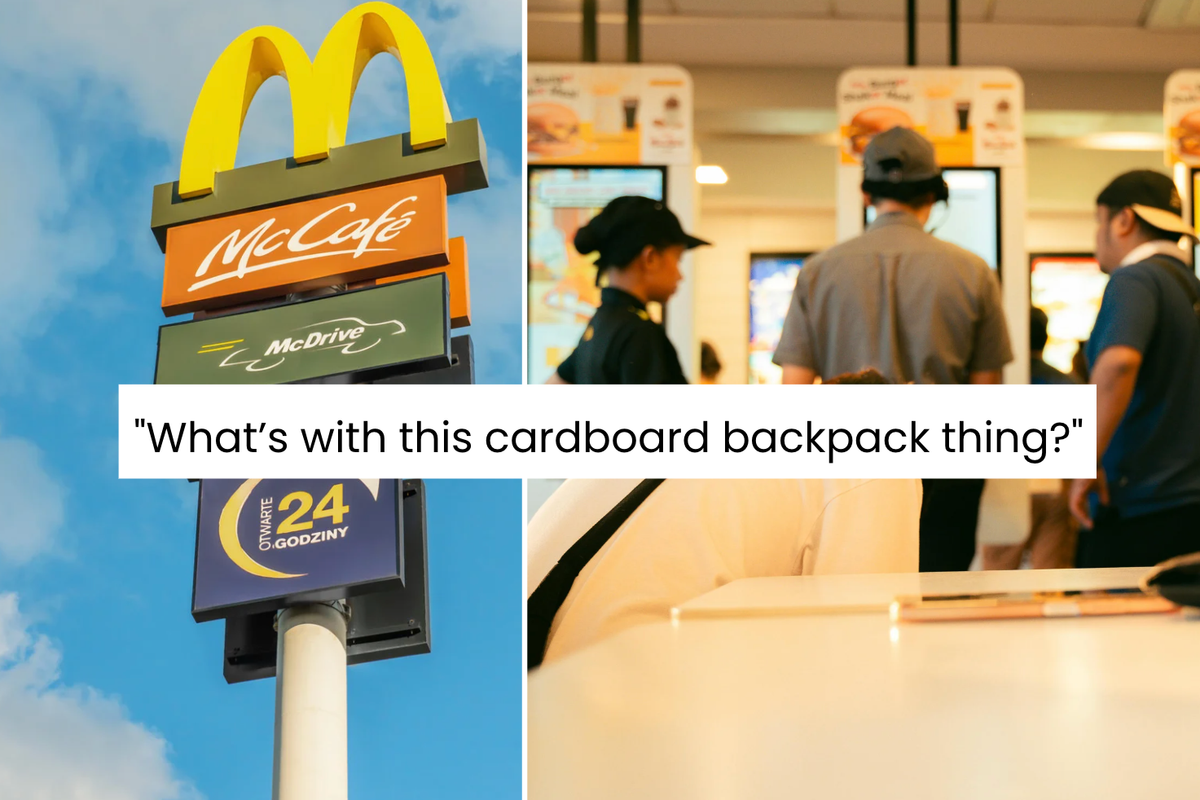A McDonald's employee shared their yearly 'bonus' package. The internet is calling it a new low.
An employee's post about their 'bonus' sparked a huge debate about worker appreciation.
McDonalds sign; McDonald's employees looking a digital screens
At the end of a long year of work, a gesture of appreciation from an employer can make a huge difference in morale. But for one employee at a McDonald's, the company's attempt at a "bonus" was so underwhelming it went viral, sparking a wave of online frustration and secondhand embarrassment.
In a post on Reddit, user u/MMS37 shared a photo of the gift they received from the fast-food giant.
"I work for one of the biggest companies in the world. This was my bonus," they wrote.

A 'Bonus' That Sparked Outrage
So what was in this now-infamous appreciation package? The photo revealed the so-called bonus package included a flimsy cardboard bag that would allegedly "disintegrate" if wet, a single movie ticket to a cinema in another city, and a few pin-up badges.
The post immediately took off, with commenters—including other McDonald's employees—slamming the gift as a tone-deaf and disrespectful gesture.
‘More Dignified Than This Insulting Stuff’
The consensus in the comments was that the "bonus" was worse than receiving nothing at all. As user u/ShiftWorth5734 explained, "I actually appreciated when my company just stopped doing bonuses altogether. It’s actually more dignified than this insulting stuff."

The bizarre cardboard bag drew particular scorn. "What’s with this cardboard backpack thing?" asked u/godefroy15. "Unpractical as hell. Wore it a few times, and it’s all crumpled."
But many users argued that the gift wasn't just cheap; it was a cynical marketing ploy. "Even calling it branded company merchandise feels generous," wrote u/CategoryKiwi. "They’re trying to make their employees into living advertisements. They should be (separately/additively) paying people to use that garbage."
A Far Cry From a Thanksgiving Turkey
The post also prompted a bit of nostalgia for a time when things were apparently different. User u/rustys_shackled_ford recalled, "In the '80s, McDonald's used to give every single employee a turkey for Thanksgiving and a ham for Christmas."

The overwhelming response on Reddit made it clear: the so-called bonus was seen not just as cheap, but as a fundamental sign of disrespect from a multi-billion dollar corporation to its frontline workers.
This article originally appeared last year.

